Scientists

Al truth machine
LIT Law Lab, Johannes Kepler Universität (AT)
From the “transparent citizen” and ”social scoring” to AI-supported truth finding in the courtroom and machine-generated administrative notices: the digitization of administration and jurisdiction has many facets. It requires not only a consideration of what is technically possible, but also what is legally permissible and what is desired in terms of legal policy. Against this background, the LIT Law Lab has two installations dedicated to the legal framework conditions (fundamental rights and data protection), problems and proposed solutions for a digitized enforcement.
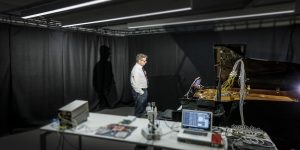
Biocomputer Rhythms
Interdisciplinary Centre for Computer Music Research (ICCMR), University of Plymouth (UK), Eduardo Reck Miranda (BR/UK)
Biocomputer Rhythms is a piece for prepared piano and percussion. It is a musical duet between a pianist and an intelligent interactive biocomputer. The biocomputer listens to the piano and produces musical responses during the performance. The responses are played on percussion instruments and on the piano by the pianist. The piano is prepared with electromagnetic actuators positioned inside the instrument to vibrate its strings. Electromagnetic actuators are also used to vibrate percussion instruments.
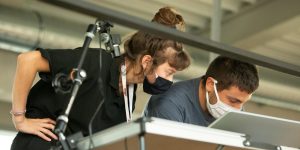
Performance Workshop: Enacting Innovation
Judith Igelsböck (AT), Friedrich Kirschner (DE), Sarah Buser (CH), Mónica Rikić (ES), Leoni Voegelin (CH), Tomás Montes Massa (CL), Laura Zoelzer (DE)
Enacting Innovation is a participatory staging of the social fabric surrounding contemporary innovation practices. Participants will negotiate the roles and situations that are frequently encountered in innovation processes and act out conflicts with each other and the technical infrastructures typically employed within such contexts. The simulation is inspired by research on ‘innovation scripts’ – the recipes followed in dealing with the omnipresent pressure to prove innovative ability.
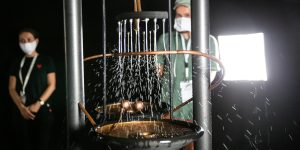
Dancing Water
Leon Kainz (AT)
This installation is based on a simple physical principle: the generation of electrostatic charges using water. The charged water droplets whirl in dynamic tracks around copper rods and react to nearby bodies. The collected charge can make a light bulb glow and generate flashes of lightning that can be centimetres long.
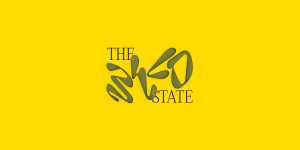
The Wild State
Campus
THE WILD STATE is the title of this year’s Kunstuniversität Campus activities at Hauptplatz Linz during Ars Electronica Festival 2020 from 9. – 13. September 2020. Existing since 2002, the intention of the Campus format is to invite outstanding international universities working in the academic fields of media arts and design. This year with an exhibition with contributions by various partner universities, as well as the departments Interface Cultures, Visual Communication, Fashion&Technology, Art Education, and Design: Tech.Tex. Special events comprise façade projection “Interfacing Hauptplatz”, the Internet flea market “Yami-ichi”, discursive format “Agora Digitalis” and the top notch nightline “Sound Campus”.

JKU LIT @ Ars Electronica
The digital revolution, demographic changes, and the climate crisis–addressing the complex, conflicting fields of our time requires an epistemic landscape that is conducive to traversing academic parameters. Crossing the borders between disciplines should be considered a starting point for possibilities – even essential as a to interlink them – rather than an act of deconstruction.
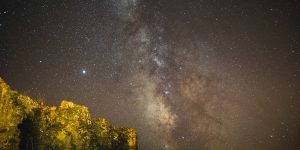
The Night Sky: Unveiling What Only the Dark Reveals
Open Science Hub - Portugal, Municipality of Figueira de Castelo Rodrigo (PT)
Open Science Hub - Portugal (OSHub-PT; Plataforma de Ciência Aberta) is a social innovation project that brings together science, technology and innovation with the daily life of local and regional communities, supporting schools and societal actors in tackling local relevant challenges. It is a project of the Municipality of Figueira de Castelo Rodrigo, in collaboration with Leiden University.
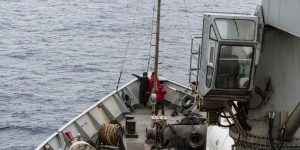
Achaeoscillator_Towards incorporeal forms of sensing listening and gaze
Terra Australis Ignota Research Group (CL) with Santiago Museum of Contemporary Art (MAC)
Achæoscillator displays the drastic weather conditions of the southernmost island in the world on a virtualized representation of the end/beginning of the Americas. A one-person experience, where the research presents traces and connections between the ancestors of the Yagán community, the Kawesqar and Selk’nam and the Antarctic, Scotia and South America continental plates, offering an inestimable and uncontrollable source of Gaia's power.
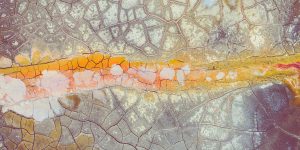
Speculating on the Future
Centre for Fine Arts (BOZAR) (BE)
BOZAR explores the role of scientific and technological research as an engine for creativity. The meeting of science, technology and the arts is the favoured basis for finding innovative responses to the social, ecological, and economic challenges that Europe will be facing in the near future. BOZAR joins the Ars Electronica Festival with its own interpretation of the Kepler’s garden, through the curation of 3 online events under umbrella name "Speculating on the future".
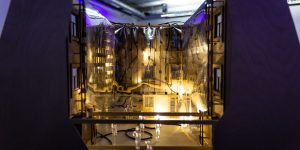
Art and Nanotechnology
gnration (PT) and INL – International Iberian Nanotechnology Institute (PT / EU)
gnration presents a virtual tour of The Invention of Sense by Marcel Weber. The exhibition explores extrasensory perception and a new sensuality. In the featured works, as well as in their presentation, Sensing, Discovering and Exciting are discussed, stimulated and elevated. The exhibition takes the premise further by extending the established restrictions of gallery space and turning the room itself into a medium and a stimulating, visceral experience.


